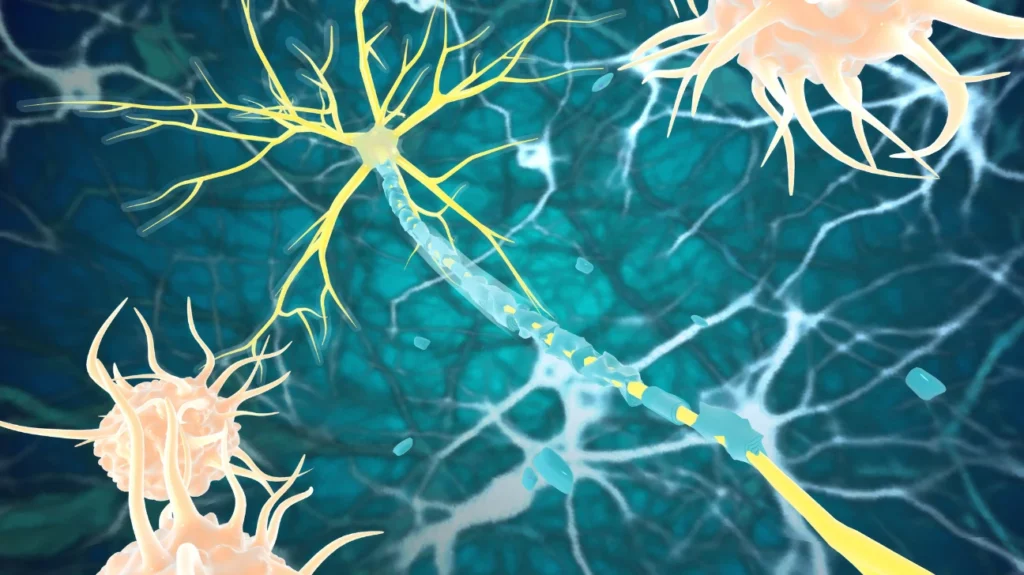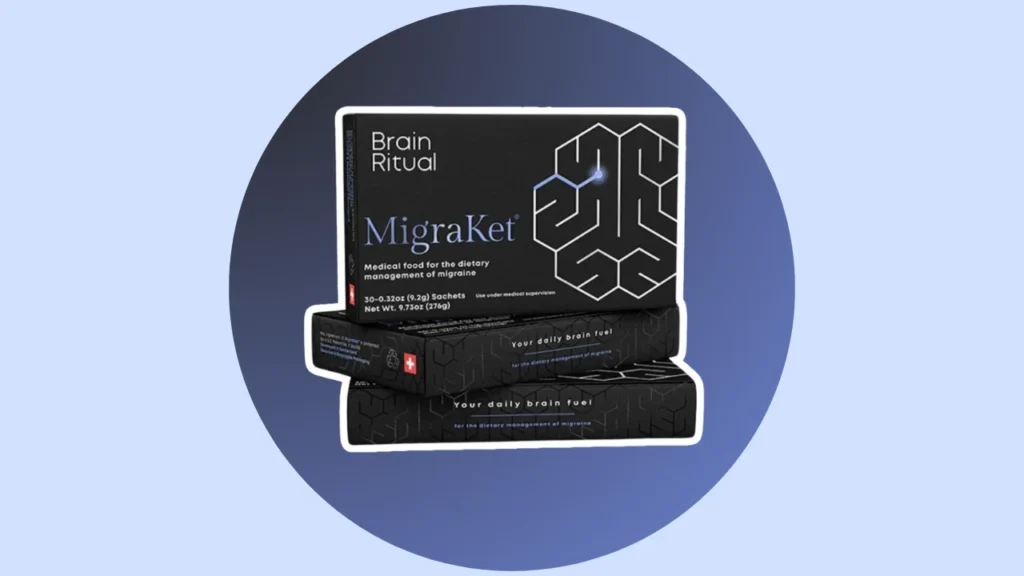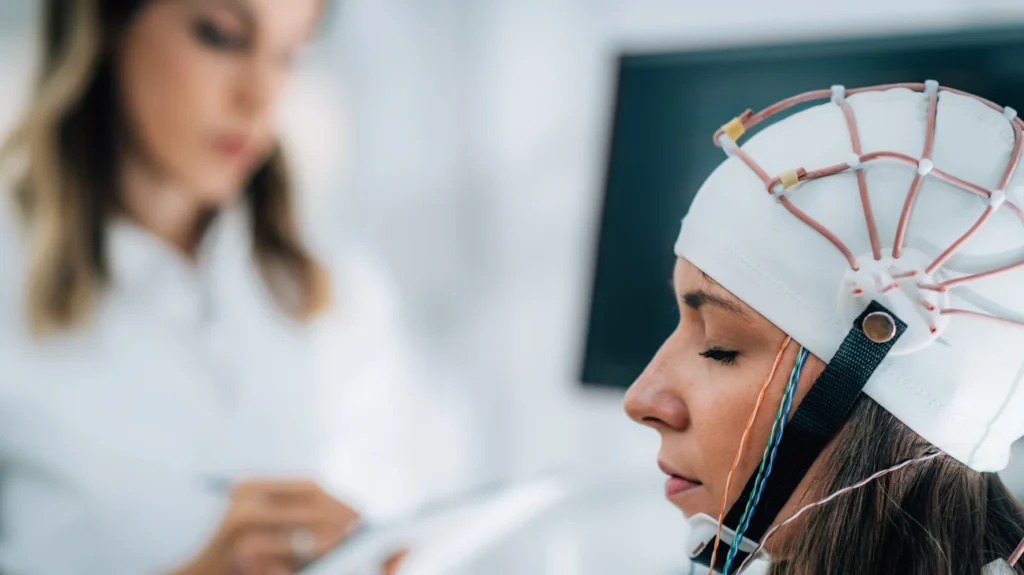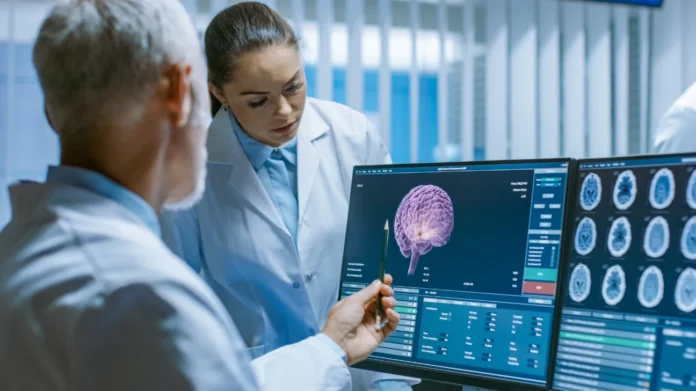In the realm of medical science, pioneers are making groundbreaking strides in the treatment of brain-centered health issues such as migraines, Alzheimer’s, and other neurological disorders. These advancements promise to revolutionize how we understand and manage conditions that have long plagued humanity. An international wellness brand, Brain Ritual, stands out for its innovative approach to alleviating the effects of migraine headaches. This novel approach focuses on ketones, a preferred energy source in the body that has been shown to restore brain equilibrium, potentially reducing the occurrence of migraines.
Migraines affect a substantial portion of the population, with approximately one in seven people worldwide suffering from this debilitating condition. This translates to about one billion people experiencing migraines globally, highlighting the widespread nature of this brain-centered health issue.
In addition to migraines, numerous other brain-centered health problems, such as Alzheimer’s disease, epilepsy, and Parkinson’s disease, impact millions more. These conditions collectively underline the critical need for effective treatments and interventions.
Brain Ritual Pioneers Breakthrough Science for Addressing Migraines and Other Brain-Centered Health Issues is an original (OptimalHealthNews) article.
Market trends for migraine treatments
The global market for migraine treatments is projected to see significant growth in the coming years. Valued at approximately $9.6 billion in 2022, this market size is expected to reach $17.5 billion by 2027, growing at a compound annual growth rate (CAGR) of 9.4%. The market includes both acute treatments and preventive therapies, with a strong emphasis on novel treatments such as Calcitonin Gene-Related Peptide (CGRP) inhibitors and neuromodulation devices.
In 2023, the acute migraine treatment market alone was valued at $2.42 billion and is forecasted to expand to $3.27 billion by 2031. This growth is driven by increased awareness of migraine symptoms, their impact on quality of life, and advancements in treatment options including triptans and CGRP inhibitors.
What about preventive treatments?
There is an enormous amount of information, regrettably without solutions, on the various neurological disorders that haunt humanity. Migraines have afflicted humans since ancient times, with documented cases dating back to 1200 B.C. Migraines and headaches are among the oldest ailments known to humanity. These painful conditions have shaped the development of medical science and have been a focal point for various cultures throughout history.
Ancient Egyptians noted occurrences of severe headaches, and by 400 B.C., Hippocrates had detailed the visual disturbances, now known as auras, that often precede migraines. The history of headache treatment and neuroscience can be traced back to around 7000 B.C., with evidence indicating that trepanation—removing a piece of skull bone—was performed to expel perceived demons and evil spirits thought to cause headaches. In contrast, other neurological disorders, such as Alzheimer’s, Parkinson’s, and epilepsy, were only recognized as a significant medical issue within the past 100 to 150 years.

Are natural remedies an alternative?
Despite recent advancements in migraine treatment, many existing therapies fall short of providing complete relief or effectively preventing migraines. This inadequacy leaves many sufferers to continue battling frequent and debilitating headaches.
Fortunately, natural remedies are gaining popularity. The appeal of natural alternatives lies in their potentially fewer side effects and a more holistic approach to managing migraines. As a result, there is a growing interest in dietary changes, such as focusing on ketones. Ketones have shown promise in reducing inflammation—a key factor in migraine development and brain metabolism stabilization—thus offering potential relief for sufferers.
However, it is important to note that health supplements are not FDA-approved; they cannot diagnose, treat, or cure any disease or health condition. Supplements should be used only as an adjunct to conventional treatment under the supervision of a healthcare professional.
What can trigger migraines and headaches?
Several factors can provoke migraines, making their management crucial for sufferers. Here are the key triggers to consider:
- Dietary Factors: Certain foods and drinks are well-known to trigger migraines in susceptible individuals. These include alcohol, particularly red wine and beer, caffeine, aged cheeses (containing tyramine, which affects blood vessels), and processed foods.
- Environmental Triggers: Various environmental factors can induce migraines. These include bright or strobing lights, loud noises, and strong smells (like perfumes, chemical odors, and smoke).
- Hormonal Changes: Fluctuations in hormone levels, especially in women, are significant migraine triggers. Such fluctuations typically occur during menstruation, pregnancy, and menopause.
- Stress: Both emotional and physical stress are common triggers of migraines. This includes anxiety, depression, significant life changes, fatigue, and physical strain.
- Sleep Patterns: Irregular sleep schedules and lack of sleep are known to contribute to migraine development. Insomnia and even oversleeping can trigger migraines, especially when there is a change in sleeping patterns due to travel.

How are inflammation and brain dysfunction involved?
There is a significant ongoing debate in the scientific community regarding the relative importance of reducing brain inflammation and addressing brain dysfunction in the treatment of migraine headaches. Both factors are critical, but they play different roles in the pathophysiology (defined as how a disease, injury, or condition affects a patient) of migraines.
Reducing Brain Inflammation: Brain inflammation is increasingly recognized as a crucial factor in migraines. Inflammation involves immune responses that can lead to the activation of inflammatory molecules that stimulate neurons and cause pain. Neuroinflammation, specifically involving the activation of certain brain cells and other immune components within the brain, has been shown to contribute significantly to migraine pathology. Studies have shown that introducing ketones, which are natural substances, to the brain may decrease migraine episodes.
Addressing Brain Dysfunction: On the other hand, brain dysfunction encompasses not only brain inflammation but also issues such as the brain not having enough energy, problems with how sugar gets into the brain, the parts of the cell responsible for producing energy not working well, the brain being too active, and more harmful molecules called reactive oxygen species (ROS) being present in brain tissue. A substance called D-β-hydroxybutyrate (D-BHB), which is naturally produced in your body and more recently available orally or through a special diet called the ketogenic diet, may help with these problems. A recent breakthrough now provides these ketones in powder form, and it has demonstrated the ability to decrease migraine events by bringing the brain into balance and concurrently reducing inflammation.
Current treatment options
Managing migraines involves a comprehensive approach to alleviating symptoms and preventing future episodes. Current treatment options include:
Acute Treatments: Preventive medications, including anti-hypertensives, antiseizure drugs, and antidepressants, are commonly used. Over-the-counter analgesics such as aspirin, ibuprofen, and acetaminophen are often the first line of defense. Triptans, a class of drugs targeting serotonin receptors to reduce inflammation and constrict blood vessels (such as sumatriptan, zolmitriptan, rizatriptan, and naratriptan) and ergots derived from ergotamine, are also effective and widely used for severe migraines.
Preventive Measures: Historically, there has been a shortage of preventive solutions for migraine sufferers. However, an international wellness brand, Brain Ritual, has revolutionized migraine management with a novel dietary-preventive therapeutic approach and a new product backed by clinical testing and patent protection.
Behavioral Strategies: Various behavioral strategies may reduce the impact of migraines. These strategies include lifestyle modifications such as maintaining a regular sleep schedule, managing stress through relaxation techniques, and avoiding known triggers. Behavioral therapies, such as cognitive-behavioral therapy (CBT) and biofeedback, offer additional support by helping individuals develop coping mechanisms and reduce the overall impact of migraines.

Brain Ritual and its groundbreaking approach to migraine relief
Brain Ritual is a brand of KetoSwiss AG, an innovative early stage enterprise at the forefront of metabolic health with its groundbreaking technology and patented intellectual property. The brand was founded by Dr. Elena Gross, who holds a B.Sc. in Psychology from the University of York, an M.Sc. in Neuroscience from the University of Oxford, and a Ph.D. in Clinical Research from the University of Basel.
A former chronic migraine sufferer, Dr. Gross explored ketone bodies and their therapeutic potential during her studies at Oxford, resulting in a discovery that significantly impacted her life. Her groundbreaking PhD project, conducted at the University of Basel and partially at Harvard Medical School, was the first clinical trial to use manufactured ketone body salts. These salts, which are naturally produced in small quantities in the human body from fat metabolism, were studied to determine their effect on restoring metabolic equilibrium in the brain. The successful trial resulted in their first product, MigraKetTM, which is specifically designed for migraines. MigraKet combines ketone bodies and micronutrients to address metabolic dysfunction, providing a more effective brain fuel alternative to glucose. It supports overall energy metabolism while simultaneously reducing inflammation, a known contributor to migraines.
Dr. Gross notes that migraines, a complex condition, should not be addressed with single-target drugs. Unlike repurposed treatments that often just focus on pain relief and come with side effects, MigraKet is a natural, drug-free formulation that includes bioactive ingredients beneficial for the body and free from systemic side effects.

Brain Ritual is positioned for growth.
Brain Ritual is a dynamic brand poised for significant international scientific recognition, robust growth, and impressive profitability. The brand’s website provides a wealth of information about its revolutionary products and their vital applications.
Brain Ritual specializes in developing advanced therapeutic solutions aimed at improving metabolic health and managing neurological conditions. Its flagship product, MigraKet™, leverages the science of ketone metabolism to provide a natural and effective way to help enhance brain energy, reduce neuroinflammation, and support overall cognitive function. MigraKet holds promise for individuals dealing with migraines and other neurological disorders.
In a recent interview, Dr. Gross shared her vision for the company’s future: “Our mission is to bring cutting-edge metabolic therapies to the market, improving lives and offering new hope for those suffering from chronic neurological conditions. The potential of our technology is immense, and we are excited about the positive impact it can have globally.”
Brain Ritual’s innovative approach has garnered substantial interest from international distributors who are eager to carry their products. Many of these distributors have also shown unsolicited interest in investment and co-venture opportunities, reflecting the strong market confidence in the brand.

What the future may hold
The journey of understanding and treating migraines and other neurological disorders continues to evolve. With ongoing research and new treatments on the horizon, there is hope for better management and relief for those affected by this persistent ailment. From the ancient practice of trepanation to today’s sophisticated neuromodulation devices, the journey of understanding and addressing these ailments reflects the broader evolution of medical science.
In this landscape, Brain Ritual presents a promising solution in the quest for improved brain health. Its innovative approach is part of a larger trend within neuroscience, where groundbreaking research is leading to new solutions for managing migraines and a variety of brain disorders. Advances in diagnostic tools are enabling earlier detection, and personalized medicine is tailoring treatments to individual genetic profiles. As a result, the future of brain health is brighter than ever.

Further reading:
Frontiers in Molecular Neuroscience: Cunnane, S. C., et al. (2016). “Can Ketones Help Rescue Brain Fuel Supply in Later Life? Implications for Cognitive Health during Aging and the Treatment of Alzheimer’s Disease.”
The Lancet Neurology: Neal, E. G., et al. (2008). “The ketogenic diet for the treatment of childhood epilepsy: a randomized controlled trial.”
National Library of Medicine: Veech, R. L. (2004). “The therapeutic implications of ketone bodies: the effects of ketone bodies in pathological conditions: ketosis, ketogenic diet, redox states, insulin resistance, and mitochondrial metabolism.”
Important Note: The information contained in this article is for general informational purposes only, and should not be construed as health or medical advice, nor is it intended to diagnose, prevent, treat, or cure any disease or health condition. Before embarking on any diet, fitness regimen, or program of nutritional supplementation, it is advisable to consult your healthcare professional in order to determine its safety and probable efficacy in terms of your individual state of health.
Regarding Nutritional Supplements Or Other Non-Prescription Health Products: If any nutritional supplements or other non-prescription health products are mentioned in the foregoing article, any claims or statements made about them have not been evaluated by the U.S. Food and Drug Administration, and such nutritional supplements or other health products are not intended to diagnose, treat, cure, or prevent any disease.
